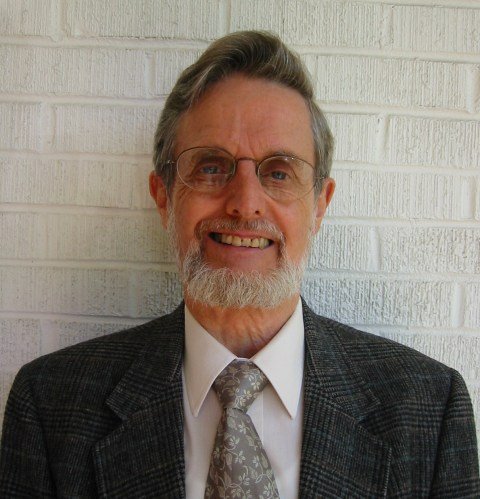|
It is natural to expect that the secular world, not having the revelation of God’s Word, would develop
its own system of values and philosophy for handling the problems of this life. But what does this
mean for the Christian? Are these philosophies and values consistent with the teachings of the Bible?
Do they add valuable insights that will benefit the church? Or do they represent a system of
ideas and methods that is in direct competition with the responsibility of the church to counsel
and help people change?
At the tender age of 11, I began a lengthy journey into the world of psychotherapy. Shock treatments,
anti-depressant drugs, childhood analysis, behavioral modification programs involving tokens,
inner healing…these are just a sample of the therapies I received during many years of a very painful
life.
It was enormously costly in terms of both time and money. All these psychotherapies were in vain,
leaving me much like the old nursery rhyme Humpty Dumpty: “All the world’s therapies, and all the
world’s men, couldn’t put Debbie back together again.” Even Christian therapists made no headway.
Being a Christian, and desperate for answers, I finally tried something “new,” the Word of God .
I dusted off my Bible and began again, sorting through the tangled psychological theories of man to
come to the pure wisdom of God. Ironically, this radical change began its course when I
witnessed a psychologist leave the field of psychology to enter full-time ministry. She said just
enough about the errors of psychology to motivate me, after her sudden death, to search out the
truth. Now, it is my firm conviction that Jesus Christ is indeed enough , and that “His divine power
has given us everything we need for life and godliness, through the knowledge of Him who
called us according to His own glory and virtue” (1 Peter 1:3). His Word is the one sure
foundation for a system of counsel that is honoring to the Lord.
To begin a closer examination of how God’s Word clashes with psychology, we must establish
a basic framework for discussion. The words of our God in Isaiah are a good place to begin:
“‘Woe to the rebellious children,’ says the Lord, ‘who take counsel, but not of Me, and who devise
plans, but not of My Spirit, that they may add sin to sin; who walk to go down to Egypt, and have
not asked My advice, to strengthen themselves in the strength of Pharaoh, and to trust in the
shadow of Egypt!” (Isaiah 30:1, 2)
God has clearly told us that our counsel must be rooted in Him alone, or we are adding sin to sin.
We are choosing a sinful, rebellious system of counsel to overcome the sins in our lives.
Consider these additional words from Isaiah:
“Woe to those who go down to Egypt for help, and rely on horses, who trust in chariots because
they are many, and in horsemen because they are very strong, but who do not look to the Holy One
of Israel, nor seek the Lord! Yet He is also wise and will bring disaster, and will not call back His
words, but will arise against the house of evildoers, and against the help of those who work iniquity.
Now the Egyptians are men, and not God; and their horses are flesh, and not spirit. When the Lord
stretches out His hand, both he who helps will fall, and he who is helped will fall down; they all
will perish together.” (Isaiah 31:1-3)
One might substitute psychology for Egypt , therapies for chariots and/or horses, and therapists for
Egyptians orhorsemen . Seeking counsel apart from the Lord is dangerous business. Considering
Scripture as a whole, we see idolatry as one of its major themes. We can learn from God’s
people, the Israelites. It was when they turned away from the Lord, placing their trust in idols
rather than in Him, that they incurred God’s wrath. We see it as the Psalms begin, “Blessed is
the man who walks not in the counsel of the ungodly” (Psalm 1:1).
Some may inquire as to whether psychology might not be a blessing if properly integrated with
the Bible. Couldn’t there be some areas of life not addressed by Scripture, where we might gain
valuable insight through the addition of psychological theories? These words from Proverbs ought
to sound a loud alarm to the integrationists:
“Every word of God is pure–He is a shield to those who put their trust in Him. Do not add to His
words, lest He rebuke you, and you be found a liar.” (Proverbs 30:5, 6)
We could hardly have a more emphatic warning about the dangers of adding to God’s words!
Yet some may still object. The Bible doesn’t instruct us about how to repair a car, perform brain
surgery, or bake lasagna. We can refer to other textbooks in these areas. Why should
counseling be different? Isn’t “all truth God’s truth?” The truth here is that counseling is
fundamentally different. Consider some of the questions clearly addressed by Scripture:
- What is the nature of man?
- What is man’s fundamental problem?
- How do we relate to our fellow human beings?
- What values guide our attitudes and actions?
- How can man solve his basic problems?
- What specific changes should he make?
- Who/what is the agent for such change?
- What are the goals of these changes?
- What is man’s relationship to God?
Consider the basic questions of psychology, and it is immediately clear that we are dealing with
competition . Every system of psychological theory addresses issues that are already fully
addressed in Scripture. The major difference is that psychology sees man apart from God .
Man is made in God’s image. How, therefore, is it possible to accurately study his behavior and
motives while excluding God? The psychologists tell us how to handle anger, when to forgive,
how to handle our relationships, how to raise children. So does the Bible . If psychology
coincidentally crosses paths with the Bible on some rare point, it is redundant. If its answers
are different, which is most often the case, then it must be in error. Where there appears
to be truth in psychology, time spent in biblical research will reveal that we already have that
truth, in purer form, in God’s Word.
The basic focus of psychology is self. Psychology attempts to improve self, repair self, value self,
esteem self, love self, find self, forgive self. Self becomes god. This is diametrically opposed
to the biblical perspective, which says that our old self has been crucified with Christ. Now we
are to put off the practices of that old self and put on the qualities of Christ, being conformed
to His image. Through biblical truth and the work of the Holy Spirit, we are justified, forgiven,
cleansed of our unrighteousness, and sanctified. Psychology, meanwhile, informs us that we are
“sick” people in need of “therapy” or “healing.” Every sin under the sun (or under the Son!)
has been renamed “disease” or “addiction”…drunkenness, gluttony, even sexual immorality.
This is tragic because it destroys the great hope of the gospel. Jesus died for our sins, promising
to remove our transgressions “as far as the east is from the west” (Psalm 103:12). God will
remember our iniquities no more. This glorious hope has been exchanged for a disease model
that keeps us in bondage, spending years on the therapeutic merry-go-round, exhausting
our financial resources as well. Rather than focusing on the Lord and the work of His Kingdom,
Christians are held captive to self …meeting the needs ofself, understanding self, protecting self,
nurturing self . The truth is: We don’t need one more psychologist to explain self or sin. We need
a Savior to deliver us from them!
In keeping with the focus on self is the focus on feelings. Some of today’s popular therapies
encourage us to “get in touch with our feelings” or to ventilate through a variety of
expressions. Those unwilling to do so are “in denial.” Feelings become god, another idol
of the heart. In contrast, the Bible instructs us to focus on the Lord, to walk in the Spirit, and
to follow His commandments. When we do so, seeking first the Kingdom of God and His
righteousness, we are promised the wonderful fruit of the Spirit as a result…love, joy, peace,
goodness, kindness, gentleness, patience, self-control, and faithfulness (Galatians 5:16-26). The
direct attack on feelings is a dead-end road, while the path of living to please God results
in those very blessings we once sought as ends in and of themselves.
Another major difference we can observe is our basic approach to handling problem behaviors
and emotions. The biblical approach is that of “putting off,” then “putting on,” where psychology
says we must “deal with” our negative feelings. One of the best examples is anger. The
psychologists (some of them!–they don’t all agree on much of anything) encourage us to
ventilate, pour it out, write it out, assert our rights, “own” our anger. The Bible, in contrast,
says to “meditate within your heart at night and be still” (Psalm 4:4), and to “get rid of all
bitterness, rage, and anger” (Ephesians 4:31). The biblical way is cleansing and quickly
accomplished. The psychological way, seemingly compassionate, extends the process
unnecessarily and even adds additional problems. The ventilation of anger is analogous to
pouring gasoline on a fire, resulting in even more severe relationship problems.
The type of relationship established in therapy is one that needs close biblical examination.
Doing so reveals a closer resemblance to prostitution than to biblical love. A relationship
which ought to be founded on love is made “professional.” Prostitution takes an intimate
relationship which should never involve money and establishes a profit-making business.
The counselee is more of an inanimate object than a Christian brother or sister in need
of our ministry, prayer, and loving service. Friendship is out of the question. There is no
genuine involvement or commitment that extends beyond the professional obligation. The
Bible instructs us to serve one another in love, to esteem others ahead of self, and to
preach the gospel without charge. The concept of “professional detachment” is foreign
to Scripture. The intimate, caring relationship of two Christians must never be reduced to
a paid friendship, anymore than the God-ordained sexual union of husband and wife should
be distorted into the business of prostitution. Furthermore, counsel that is founded in Jesus
Christ must be dependent on His wisdom, His power, His sufficiency, rather than the skills,
education, or so-called expertise of the counselor. Neither can it be based on the internal
wisdom or outward efforts of the counselee. Paul’s words remind us:
“Such confidence as this is ours through Christ before God. Not that we are competent in
ourselves to claim anything for ourselves, but our competence comes from God.”
(2 Corinthians 3:4, 5)
Counselor and counselee are equal before the Cross. Clearly, the modern therapist/patient
relationship is not based on any model of biblical love that can be found anywhere in Scripture.
Seeing the truth of Scripture and its many clear warnings about the dangers of ungodly counsel,
the question naturally arises: Why do Christians embrace the theories of psychology? Why isn’t
it exposed for what it really is? Why are even “the very elect” deceived? What is the attraction?
One reason is that each of the primary psychological theories is in some way a dim reflection of
biblical truth, a counterfeit that almost passes for the real thing. The behaviorists, for example,
talk about rewards and punishments. So does the Bible, although there is a vast difference.
The Christian learns to live a life pleasing to God, regardless of the immediate rewards or
punishments, sometimes enduring actual persecution for the sake of the gospel. His citizenship
and rewards are in heaven. He also enjoys the fruit of the Spirit, but rewards (particularly
earthly rewards) are not the driving motivation of his heart. The behaviorists see only
the capability of responding to immediate consequences, like the training of an animal who
has no spiritual nature. The cognitive theorists emphasize thinking. The Bible also talks about
thinking:
“Finally, brothers, whatever is true, whatever is noble, whatever is right, whatever is pure,
whatever is lovely, whatever is admirable–if anything is excellent or praiseworthy– think about
such things.” (Philippians 4:8)
Thinking in biblical concepts and language is an important help to anyone seeking counsel.
However, the Christian’s thinking is merely a beginning. He must be a doer of the Word, not
merely a hearer, and he must examine his heart before God. Thinking, in and of itself, cannot
solve all of life’s problems. Other schools of psychology, and the increasingly popular
12-step movement, focus on group interaction. The Bible instructs us to assemble together for
praise, prayer, Bible study, worship, and fellowship. Many “one another” verses in the New
Testament stress the importance of our relationships with others. God says that believers
are competent to counsel one another (Romans 15:14). However, the psychological approach
all too often encourages a “legalized” slander or gossip, and confession of sin before persons
who are not, and should not , be involved. These are but a sample of the confusion. Each
psychological theory could be similarly examined from a biblical perspective to discern the crucial
differences.
A second major problem concerns evangelism. As Christians, we have an eagerness to share
our faith with unbelievers, to communicate the gospel effectively and relate it to modern life.
It is much too easy to forget that it is the Holy Spirit who convicts a person of sin and leads him
to repentance and salvation. We cannot do that through the efforts of the flesh. We can love,
we can speak the truth, and we can present the gospel. But only God can bring about the actual
salvation of that unbeliever and set him free from spiritual bondage. It is a great temptation
to use the popular psychological terms of our culture to establish a common ground with the
unbeliever and facilitate communication.
Conclusion
It is with much grief and alarm that we must note the growing popularity of the psychologist,
the “secular priest.” When the church seemingly fails, when God supposedly is not enough
and His Word incomplete, when the pastor doesn’t know how to counsel a particular person,
then referrals are freely made to the “high priests” of psychology. It ought to be the other way
around! When the wisdom of man proves bankrupt (which it is), when the resources of self
are exhausted, then it is time to consult the one true Counselor, the Lord Jesus Christ. God has
ordained His people and His church to lead the way in solving the painful problems of life…
His way . He has ordained pastors and elders to shepherd His flock and protect them
from dangerous heresies and “wolves.” He has told us Himself in Isaiah 55:9 that “as the heavens
are higher than the earth, so are My ways higher than your ways, and My thoughts than your
thoughts.” In responding to the empty wisdom of the world, we must be like Daniel, who
“determined in his heart that he would not defile himself” (Daniel 1:8). It is my fervent prayer
that the church of Jesus Christ will awaken to its long neglected responsibility to counsel those
whose lives are broken by the sins and trials of this life.
© 1991, Christian Discernment Publications Ministry, Inc.
www.christiandiscernment.com
__________________________________________________________
|














